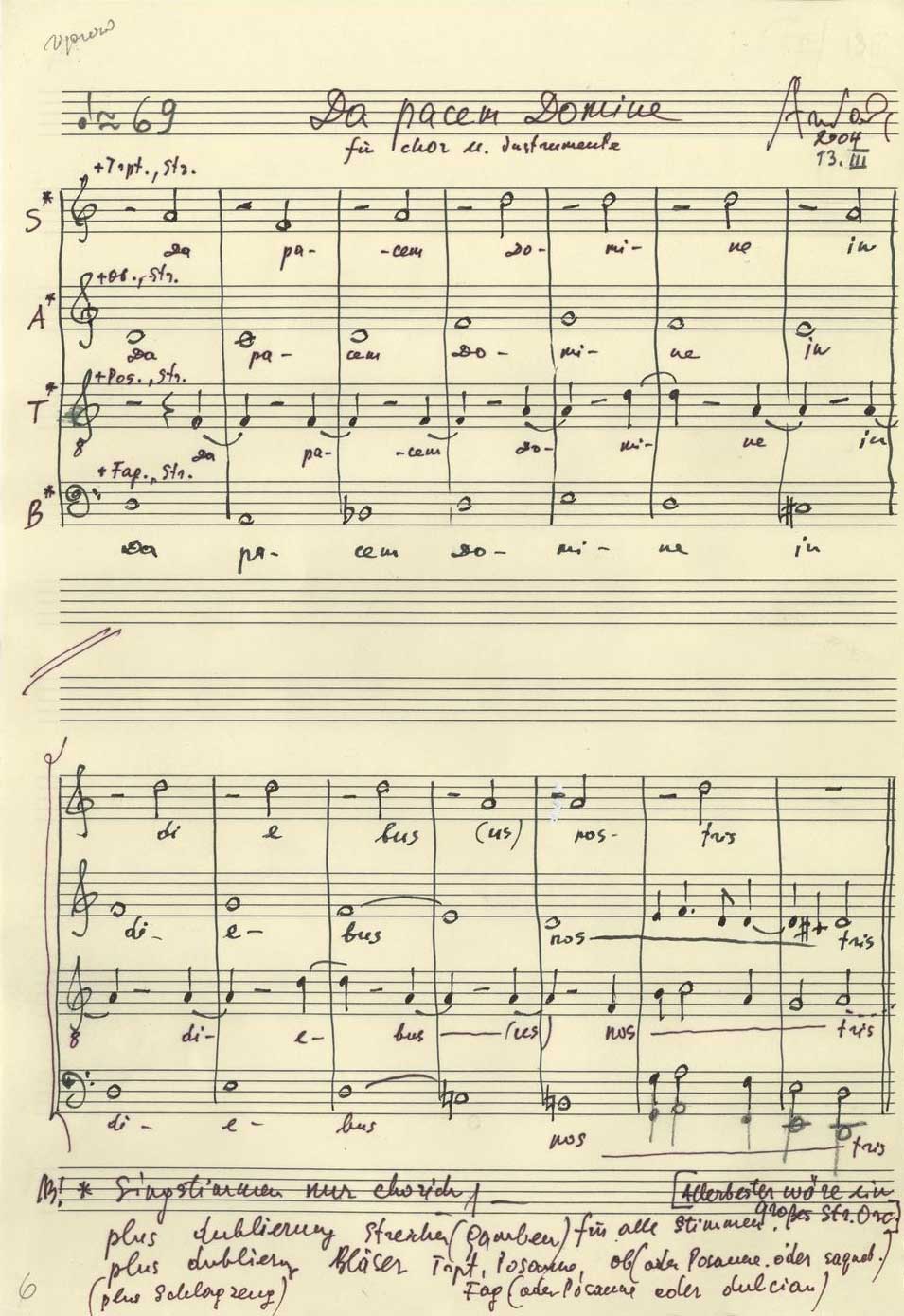Arvo Pärt received the original impetus for composing his Latin vocal piece, Da pacem Domine (Latin for “Give us peace, Lord”), from Jordi Savall, a virtuoso gambist and researcher of early music, who commissioned it for his peace concert. Savall had the idea to put together a concert programme under a common theme based on Da pacem Domine, a 9th century Gregorian antiphon, and music from different centuries based either on its text or its melody.
Therefore, Arvo Pärt has built his work on the melody of the antiphon (which can be heard in the alto part) and added three polyphonic voices composed using the tintinnabuli technique. This is an exceptional case in Pärt’s music because he usually does not quote Gregorian chant in his works. However, Pärt h…
Arvo Pärt received the original impetus for composing his Latin vocal piece, Da pacem Domine (Latin for “Give us peace, Lord”), from Jordi Savall, a virtuoso gambist and researcher of early music, who commissioned it for his peace concert. Savall had the idea to put together a concert programme under a common theme based on Da pacem Domine, a 9th century Gregorian antiphon, and music from different centuries based either on its text or its melody.
Therefore, Arvo Pärt has built his work on the melody of the antiphon (which can be heard in the alto part) and added three polyphonic voices composed using the tintinnabuli technique. This is an exceptional case in Pärt’s music because he usually does not quote Gregorian chant in his works. However, Pärt has composed this piece like a motet in the spirit of Renaissance music, using the traditional cantus firmus* method and structuring the form with cadenzas typical of Renaissance music. Another association with the performance practices of early music is the fact that Pärt simply composed Da pacem Domine as four-part music and did not designate the exact set of performers. At the same time, the unfixed set of timbres is also characteristic of several of his other works (Pari intervallo, Fratres etc.) and was especially relevant in his early tintinnabuli works of the 1970s. So far, there are nine different versions of the music for Da pacem Domine for various instrumental settings: for cellos, saxophones, recorders, voices and orchestra among others.
Da pacem Domine premiered in summer 2004 in Barcelona, performed by the early music ensemble Hespèrion XXI, La Capella Reial de Catalunya and Jordi Savall. The entire concert was dedicated to the memory of the victims of the bomb attack in Madrid in March of the same year. This piece by Pärt is sometimes considered a direct dedication to the victims of the terror attack in Madrid, as the piece was indeed finished a few days after this act of terror. However, Da pacem Domine is in fact a universal prayer for peace about the pain and suffering of all of humankind, expressing a firm belief that God is our only true protection, especially during restless times.
Later, Pärt has made several new arrangements for various scorings, not only for voice but also entirely for instruments. He arranged Da pacem Domine for 8 or 4 cellos at the request of the ensemble Cello8ctet Amsterdam who premiered the piece in August 2010 at the Nargenfestival Arvo Pärt Days in Rakvere, Paide and Tallinn.
________________________________
* Cantus firmus ("fixed song") is a pre-existing melody forming the basis of a polyphonic composition.
